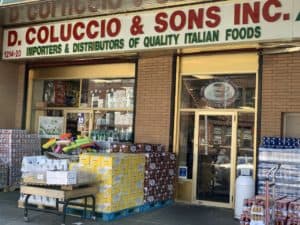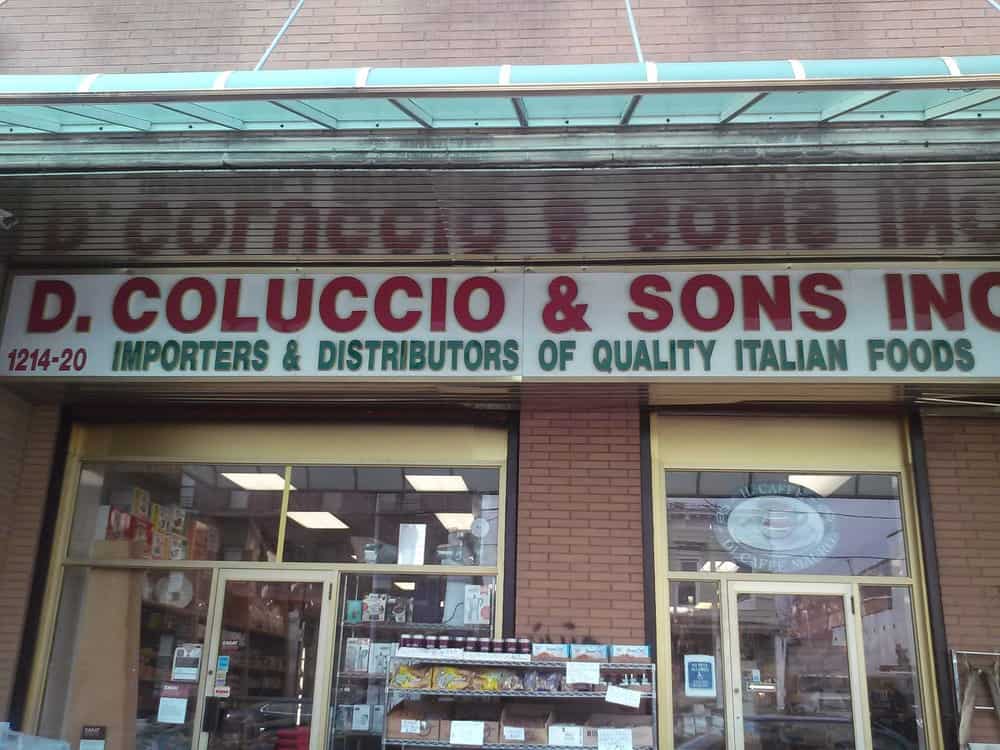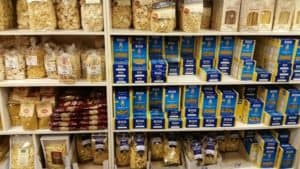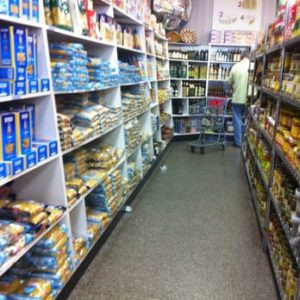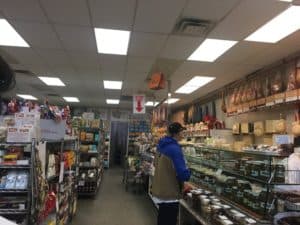
There are a few genuine Italian speciality food stores left in New York City. One of them is D. Coluccio & Sons. In what used to be the centre of Little Italy in Brooklyn, D. Coluccio & Sons is sandwiched between Borough Park, Bensonhurst and Bay Ridge. Founded by Domenico Coluccio in 1962, D. Coluccio & Sons has the finest variety of imported Italian pasta, cheeses, baking products, prosciuttos, soppressata, and delicious cakes available today in the Tri-State area. Did I mention that they also make mozzarella on-premises? You will often find the mozzarella still warm on deli countertop display.
Immigrating from Gioiosa Marina, a small town in southeastern Calabria, Italy, Domenico began importing foods that you could get only from his part of Calabria. This tradition of maintaining an inventory of unique food imports has continued today with his children, Luigi, Rocco, and Cathy.
I drove to the store in late April to shop and to see how things are going in the wake of the coronavirus. I had to queue out in front, along with other people, as the store now only allows five customers in at a time. Everyone must wear a mask and a pair of gloves (they provide the gloves) to enter.
When it was my turn, I rushed into the store like a thief, grabbing a few essential items: a box of fresh pasta, packages of stuffed ravioli, olive oil, bottled artichokes, and a few bags of pepperoncino-flavoured Carlucci (a snack which is like a cross between a cracker and pretzel). Of course, no visit to D. Coluccio & Sons is complete without at least one (or two) spicy soppressata(s). There is nothing like biting into a Coluccio soppressata. It is not packaged food. Made with pepperoncino and other flavours specific to Calabria, I always close my eyes and sigh when I take the first bite. Before the virus, when my wife and I had company, I would proudly serve sliced Coluccio soppressata, stacked up next to Coluccio’s Asiago cheese, and watch people’s reactions after their first taste. Most would shake their heads and point at the delectable treat in disbelief.
Here is a little secret: I often wake up in the morning and cut a few pieces of Coluccio soppressata to eat first thing. Before vitamins. Before anything. I eat as much soppressata as I want in the morning because I know I’ll burn it off during the day.
As I was curious to learn more about how else the virus has affected the store, I called a few days later to see if I could talk to someone. When I said I was calling from the Red Hook Star-Revue, I was passed to Cathy, the founder’s daughter.
I told her that I have long been a big fan of D. Coluccio & Sons and would love to chat about the impact of the coronavirus. Cathy was immediately friendly and warm.
“Importing is definitely slower,” said Cathy. “But our inventory is completely stocked.”
‘I noticed all of the regular items are on the shelves,” I said.
“We’ve done our best to adapt,” Cathy added. “And because of our connections in Italy, we made adjustments to our business early on. In fact, we were among the first stores in New York City to require wearing masks and gloves and to limit the number of people in the store at the same time.”
“Has the virus changed the things people purchase?” I asked.
“People are buying more things to cook at home. Our pasta flies off the shelves. Our all-purpose double zero flour (also called doppio zero) has been immensely popular. People are doing a lot of baking at home: bread, pasta and pizza. We also have fresh yeast and dry yeast, both of which have been in short supply everywhere.”
“How has the community reacted to D. Coluccio & Sons staying open?” I asked.
“Everyone has been incredibly supportive,” said Cathy. “One of the really wonderful things is the stories we hear. People making cakes and baking bread for each other, leaving them at the door. Neighbours, friends, and family. It’s really sweet.”
“When do you think you’ll get back to normal?” I asked.
“Hopefully soon. This is not just another store. This is our family tradition. It goes back generations. In the meantime, we will continue bringing great food into people’s homes in the safest way we can.”
For more information, go to dcoluccioandsons.com. Mike Fiorito’s most recent book, Call Me Guido, was published in 2019 by Ovunque Siamo Press. His two short story collections, Hallucinating Huxley and Freud’s Haberdashery Habit were published by Alien Buddha Press. He is a regular contributor to the Red Hook Star-Revue. Visit www.callmeguido.com.
